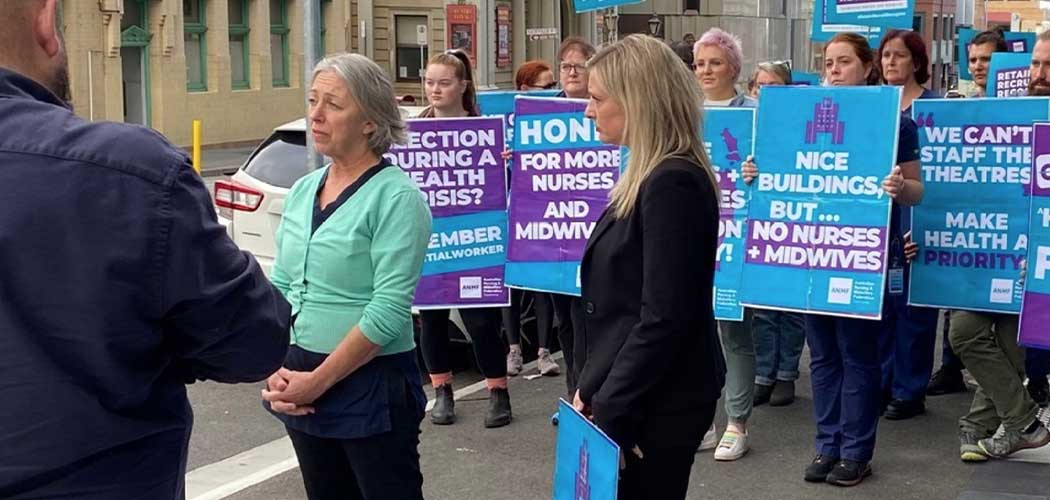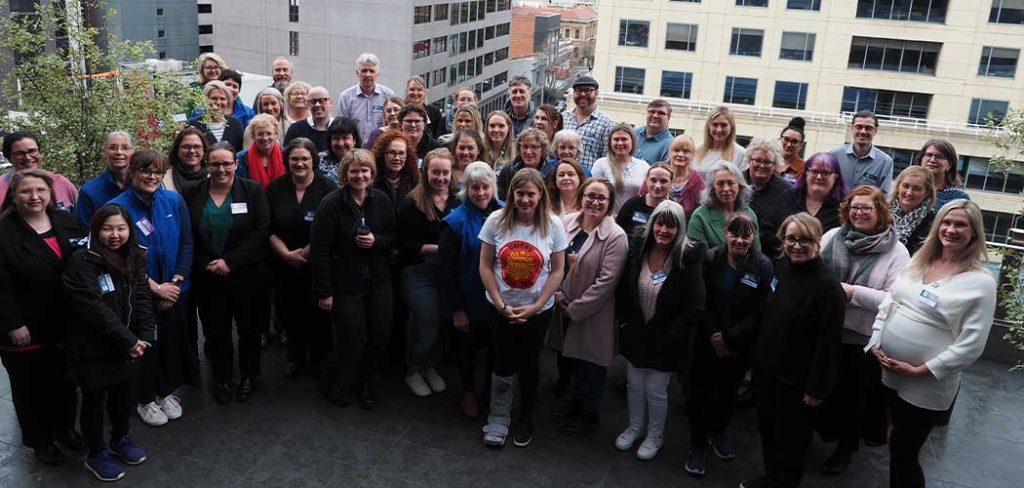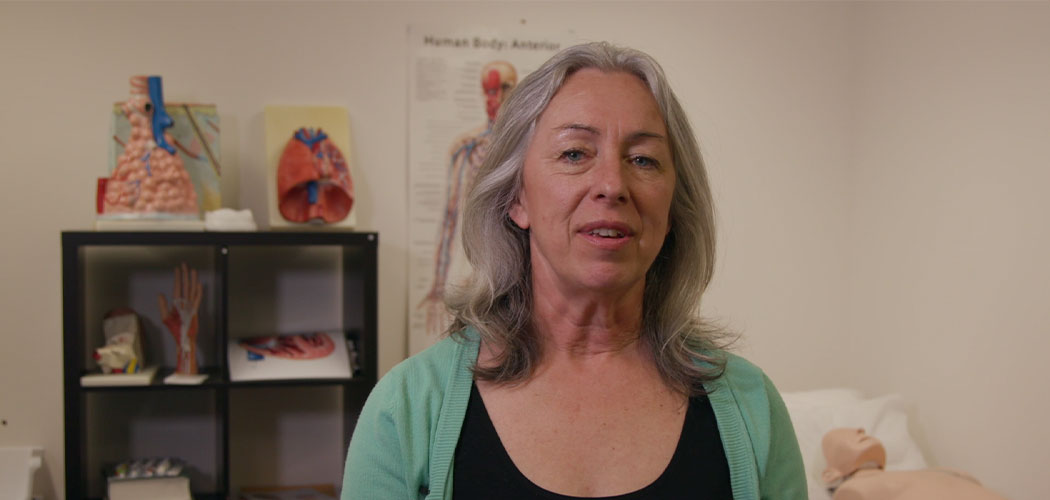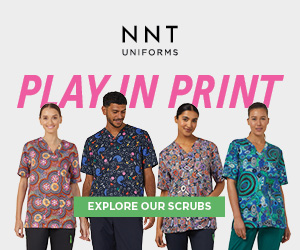ANMF Tasmanian Branch member Monica Werner has been a member of the union since she started nursing in 1981. She talks with the ANMJ about the role of the workplace delegate and the value of unions in not just the work setting but the broader community.
Q: How did you get involved in being a workplace representative?
It started with a workplace grievance where we had workload and safety issues. We tried through normal channels and didn’t feel listened to, nor did we feel that the change we needed was going to happen. There were a few situations where we felt things were wrong and unsafe, that’s when we approached the union, and I became involved in that grievance. From that grievance – which had a positive outcome – I was approached to become a rep, and from a rep I got approached to join Branch Council where I’ve been for around 10 years.
Q: What is the value of the union?
I didn’t really appreciate the value of the union until I needed the union in my workplace directly. I think this is the case with a lot of people, that they don’t fully understand what the functions and the value of their union is and there is this fear of what might happen.
‘We’ are the union and it’s often a very difficult message to get through. You often hear people say: ‘what’s the union doing for me?’ ‘What’s the union doing about it?’ Well, that’s us. What are we doing about it? What are you doing about it? I say: ‘come outside. We’ve got a rally today. Come on out. You can be part of this because your presence adds to everybody else’s presence and that makes us a big, loud voice.

Q: Why become a workplace delegate?
You do this voluntarily, it’s not a paid job. You do it because it matters and you’re passionate about it and you care about your colleagues, you care about your patients, and you care about your profession.
Q: Do you need industrial experience or knowledge?
As a rep, you’re a contact point for people in the workplace who have questions, who have something that needs to be sorted through. It may be a union matter, it may not. But you’re that link and even though you may not have the answers, you know where to find the answers and your knowledge and confidence grows. That connection impacts in a positive way on how people view unions and view our union.
Q. What is unique about the ANMF?
What makes us different to some other unions, is that we have values and this sense of what is humanely right, even outside the workplace. We speak up for our colleagues overseas in conflict zones, for marginalised people, for marriage equality, for the environment. These sorts of things we make a real valued stand on. We speak up. We speak up and we’re articulate, we’re professional, we’re respected.
Because we understand that it’s about our communities, what we do and who we stand for. We’ve got our patients, but it’s our communities. Our pay, our work conditions are very important for us to do our job but behind our work conditions and our pay are our professional standards and safety to the community. It’s not just about us. I think we’re quite selfless and we’ve demonstrated as a profession to be very selfless.

Q. What value do reps bring to the workplace?
Being in the union opens healthy discussions. It’s not just one viewpoint, you must open some healthy debates and discussions about what’s going on. I think if you can’t do that, it’s too one-sided and quite often it’s on the side that has less to do at the coalface. You’ve got people in the workplace for who those issues affect directly, and you’ve got to listen to those voices.
As a workplace rep, you’re there with your patients, you’re there with your colleagues. I get firsthand accounts of what’s happening on the ground, I’m in a position to be able to share those stories. Whether it’s an EBA or whether it’s a grievance, or even if it’s an issue that doesn’t go further, you’re in the best position to be speaking up.
Q. Are there enough workplace reps?
I feel that we’re still underrepresented in the workplace: the more representation you have, the more supported you feel, and that voice becomes louder, and that louder voice makes people stop and listen. They pay attention, they think about it a little bit more and they go, ‘hey yeah, this is something of value.’
Workplace reps are extremely valuable. We have workloads that are far more than we’ve ever experienced. In my career, I’ve never worked harder than I am now, and this is not just me but the whole nursing profession. I can only speak for Tasmania, but from what I’m hearing the stories are the same everywhere. Everywhere is understaffed. We’ve got so many nursing vacancies; we’re breaking our own records with double time. We’re reliant on fatigued nurses to perform at a high level and to do that safely and then go home and look after their own families.
There are barriers in resources, in bureaucracy, and other blockers in our ability to be able to perform at the standard you expect of yourself, and that the rest of the world expects you to perform at.
Q. What would you say to those interested in becoming a workplace rep?
It’s empowering. It really is, I had no idea when I first started what it was about. But you get trained [to become a rep]. You get to meet other reps; you’re supported as you become more knowledgeable and with that comes empowerment and confidence within yourself because you know that your part of this team that can make a real positive difference within your workplace and that’s something to be proud of.
It’s not just about an EBA, it’s about everything else that’s happening in the workplace. Your focus is on patient safety but it’s also on looking after staff and being able to maintain high standards of patient care and preparing the way for the next generation of nurses.
We need as many reps as people are prepared to be reps. You get to share the load if there’s more of you. If you’ve got that collegial care around you, you feel safer, supported and more empowered.
It shouldn’t take a workplace crisis to get someone motivated to become a rep. We should embrace unionism and support one another and our shared values – if we do that then I think workplaces and the future of nursing will be a whole lot better.








